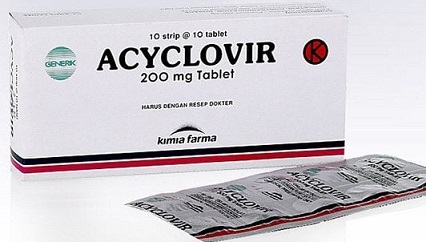COVID-19 Drugs - Acyclovir May 09, 2023 1 year, 11 months, 1 week, 4 days, 16 hours, 15 minutes ago
COVID-19 Drugs: Drug repurposing has garnered significant interest as a viable alternative to traditional drug development, offering a cost-effective, time-saving, and less risky approach. Amid the ongoing COVID-19 pandemic, the urgent need for therapeutic agents to prevent viral outbreaks has intensified.

Well-established antiviral drugs like acyclovir (Acv) have shown promise in combating COVID-19, but their biopharmaceutical classification system (BCS) class III/IV status, with low permeability and/or slight water solubility, remains a challenge.
In this study, Brazilian
COVID-19 Drugs researchers synthesized two new Acv salts, nitrate and sulfate, to enhance its pharmacokinetic properties, offering a potential breakthrough in COVID-19 treatment.
The Power of Drug Repurposing
Drug repurposing leverages existing medications to treat different conditions, saving time and resources in drug development. With the COVID-19 pandemic putting pressure on researchers to find effective treatments, drug repurposing has taken center stage. For instance, remdesivir, initially developed for Hepatitis C and Ebola, has demonstrated activity against SARS-CoV-2 and is now approved for COVID-19 treatment. Acyclovir, a widely available antiviral drug, has also shown potential against COVID-19. However, its low permeability and solubility limit its effectiveness.
Acyclovir: A Promising Candidate
Acyclovir is a guanosine analogue and antiviral drug used worldwide to treat herpes simplex virus (HSV), genital herpes, and varicella-zoster virus (VZV). Acv's primary mechanism of action involves its conversion to acyclovir monophosphate by virally encoded thymidine kinase, followed by conversion to acyclovir triphosphate by cellular enzymes. This inhibits viral DNA polymerase, making Acv a promising candidate for COVID-19 treatment. However, its limited crystalline solid forms and BCS class III/IV status restrict its full potential.
New Acyclovir Salts: A Step Forward
In an effort to improve Acv's pharmacokinetic properties, Brazilian researchers synthesized two new Acv salts, nitrate and sulfate. These salts were characterized using single crystal X-ray diffraction (SCXRD), differential scanning calorimetry (DSC), Fourier transform infrared (FTIR) spectroscopy, Raman spectroscopy, thermogravimetric analysis (TGA), Hirshfeld surface analysis (HS), and full interaction maps (FIM). The researchers also included acyclovir hydrochloride, previously reported in the literature, for comparative purposes.
Salts and co-crystals are known to enhance the physico-chemical properties of active pharmaceutical ingredients (APIs). More than 40% of commercially available APIs face bioavailability challenges, and the development of new crystalline solid forms could significantly improve their pharmacokinetic and pharmacodynamic properties. The synthesis of Acv nitrate and sulfate salts represents a promising step toward addressing Acv's solubility and permeability issues.
Implications and Future Research
The synthesis of Acv nitrate and sulfate salts has the potential to revolutionize Acv
's use in COVID-19 treatment by improving its pharmacokinetic properties. This study highlights the power of drug repurposing, particularly during a global pandemic where time is of the essence. By leveraging existing medications and enhancing their properties through the synthesis of new salts, researchers can expedite the development of effective treatments for various conditions, including COVID-19.
Future research could focus on the in vitro and in vivo evaluation of these newly synthesized Acv salts, to determine their efficacy and safety in treating COVID-19. Additionally, further exploration of other potential Acv salts and co-crystals could provide valuable insights into the full range of possibilities for enhancing Acv's properties. Comparing the pharmacokinetic profiles, bioavailability, and potential side effects of these new salts with those of the original Acv compound would also be essential in determining the most suitable form for clinical use.
Moreover, the approach taken in this study could be extended to other existing antiviral drugs, broadening the scope of drug repurposing efforts in the fight against COVID-19 and other viral diseases. Investigating the potential synergistic effects of combining Acv salts with other antiviral drugs could also be a promising avenue for future research, as combination therapies have demonstrated success in treating various viral infections.
This study represents a significant step forward in drug repurposing efforts to combat COVID-19. The improved pharmacokinetic properties of Acv nitrate and sulfate salts could make this well-established antiviral drug a more effective therapeutic option for patients with COVID-19. This study serves as a powerful reminder of the importance of drug repurposing and the potential benefits of exploring new crystalline solid forms of APIs.
The study findings were published in the peer reviewed journal: Crystals.
https://www.mdpi.com/2073-4352/13/5/782
For the latest on
COVID-19 Drugs, keep on logging to Thailand Medical News.
